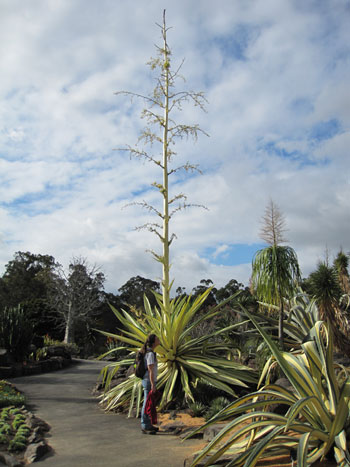Tower of Eco-Babel
Add Summary

Blogger: Abigail Lynch, a doctoral candidate in the Department of Fisheries and Wildlife and a CSIS member, blogs from Down Under -- she's in Australia to build a framework for her dissertation research. She's interested in developing a decision-support tool to regulate harvest management strategies for lake whitefish in a changing climate.
Tower of Eco-Babel
Tuesday, July 5, 2011
 Terrestrial ecologists don’t study the same literature as fisheries scientists. In many cases, they don’t even seem to be speaking the same language. Using the term vegetation in lieu of habitat, for example, may work in some terrestrial systems, but it clearly doesn’t apply to aquatic ecosystems, nor even many terrestrial systems. At some point in the evolution of ecological sciences, the Tower of Eco-Babel fell; the fields fractured to a point where keeping up with the literature in one subject was difficult enough, and trying to follow another on top of that was impossible. It’s a shame really, though because the discussions today could really have benefited from an expert in multi-species or ecosystem based fisheries management. I wish that I were skilled enough to present that perspective, but I’m still so unlearned in the field that I can only observe that the deficiency existed in the workshop today. Likewise, I'm sure that these ecologists have valuable approaches and information to share with fisheries scientists. I guess in some way, that's why I'm here -- to try to learn both languages.
Terrestrial ecologists don’t study the same literature as fisheries scientists. In many cases, they don’t even seem to be speaking the same language. Using the term vegetation in lieu of habitat, for example, may work in some terrestrial systems, but it clearly doesn’t apply to aquatic ecosystems, nor even many terrestrial systems. At some point in the evolution of ecological sciences, the Tower of Eco-Babel fell; the fields fractured to a point where keeping up with the literature in one subject was difficult enough, and trying to follow another on top of that was impossible. It’s a shame really, though because the discussions today could really have benefited from an expert in multi-species or ecosystem based fisheries management. I wish that I were skilled enough to present that perspective, but I’m still so unlearned in the field that I can only observe that the deficiency existed in the workshop today. Likewise, I'm sure that these ecologists have valuable approaches and information to share with fisheries scientists. I guess in some way, that's why I'm here -- to try to learn both languages.
From what I could gather, fisheries is a good deal more advanced in this field of multi-species approaches to management than the terrestrial ecology discussed at the workshop. Perhaps because of the inherent motivation of economics, fisheries science was forced to look beyond the scope of more traditional approaches to single-species management, considering ecosystem structure and adaptive management. This workshop has clear goals to advance the understanding of multi-species management in ecology and wishes to develop novel papers and grant proposals within this realm. I only hope that they are able to look outside the scope of their focused field to build upon existing literature and approaches rather than attempt to re-invent the wheel.
Lynch's studies are supported by a William W. and Evelyn M. Taylor Endowed Fellowship for International Engagement in Coupled Human and Natural Systems, an International Studies and Programs Predissertation Award, an Ecology, Evolutionary Biology, and Behavior Summer Fellowship, a Graduate School Research Enhancement Award, and a travel award from the College of Agriculture and Natural Resources.



 Print
Print Email
Email




